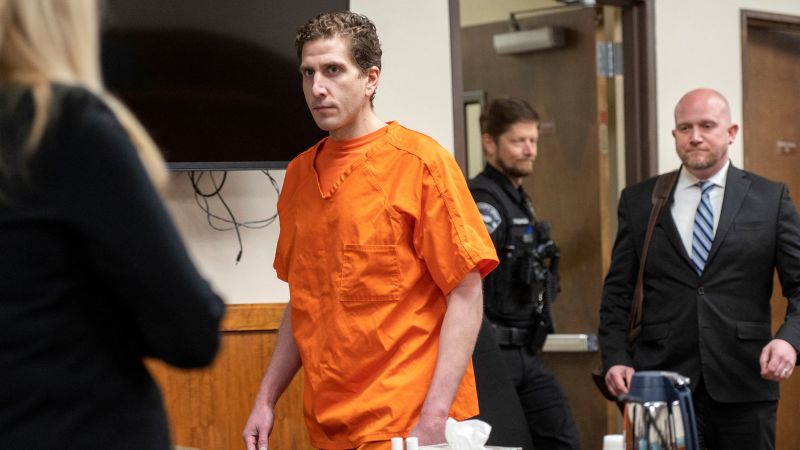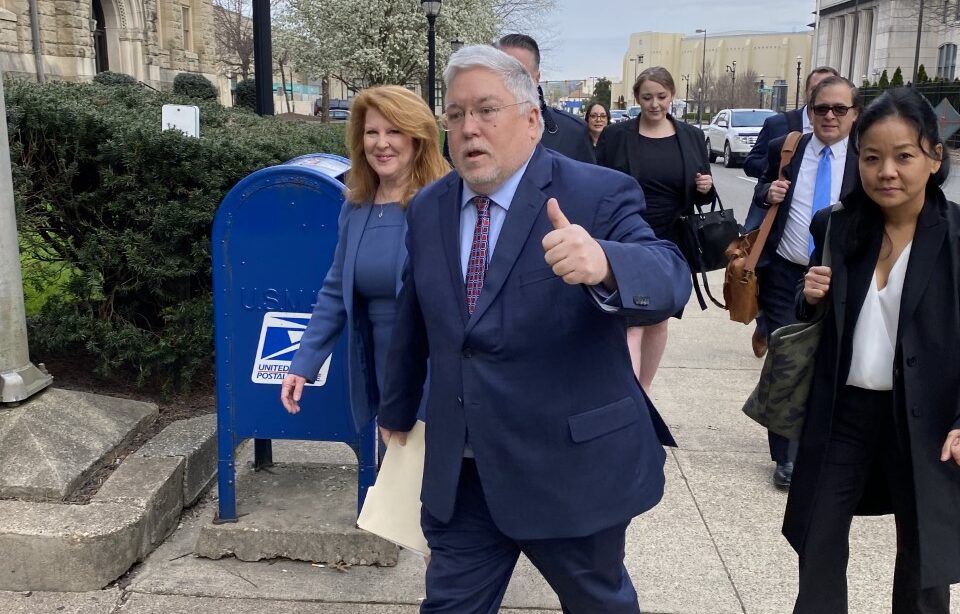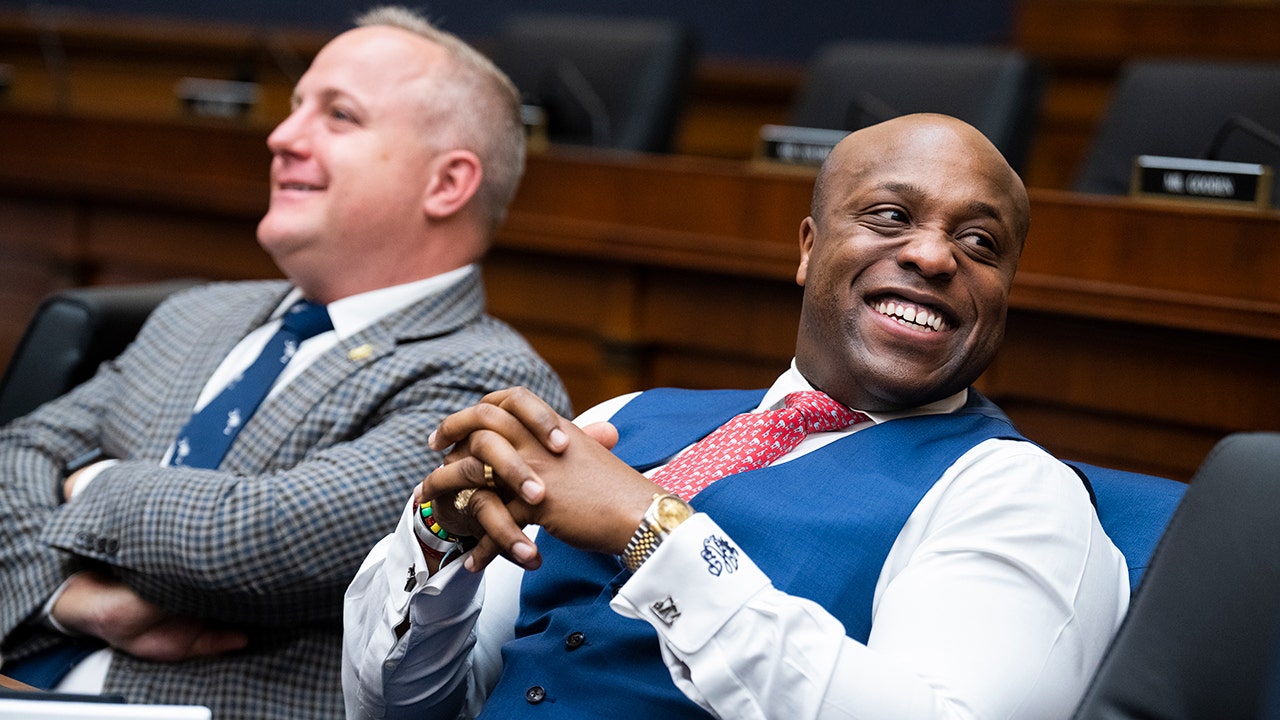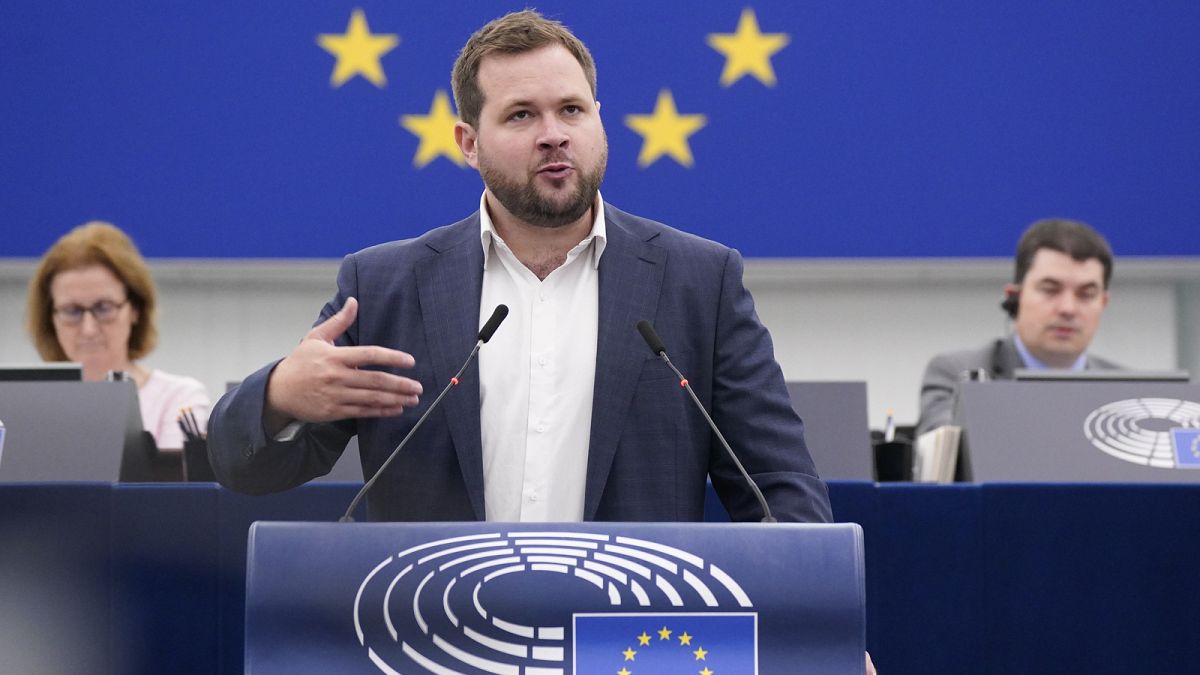Idaho’s public university professors say a law barring state employees from ‘promoting’ or ‘counseling in favor of’ abortion limits their ability to teach.
Lillian Mongeau Hughes
| Center for Public Integrity
This story was published in partnership with the Center for Public Integrity, a newsroom that investigates inequality.
University of Idaho student Bergen Kludt-Painter started school in August 2022, a few months after a U.S. Supreme Court decision struck down Roe v. Wade. Soon after, abortion was banned in Idaho in almost all instances.
The political science major was eager to discuss the precedent-shattering case in class, but, she said, “we talked about everything except for abortion.”
During a political science course on how to write a research paper, her professor said he could not give her feedback on her chosen topic — abortion. The issue didn’t come up in her other political science classes either, even as state after state changed their abortion laws. Nor did abortion get mentioned in her Introduction to Women’s Gender and Sexuality Studies course.
“It wasn’t discussed,” she said, “which I found odd, personally, because it feels like something that would be relevant to talk about in a class like that.”
But few, if any, public university professors in Idaho are talking about or assigning readings on abortion these days. That’s due to a 2021 law that makes it illegal for state employees to “promote abortion” or “counsel in favor of abortion.” Professors have said those two phrases put them at risk of violating the law, known as the No Public Funds for Abortion Act, just for discussing abortion in class. The possible penalties include significant fines and even prison time.
Six named University of Idaho professors and two faculty unions filed a lawsuit against the state in August for violating their First Amendment right to free speech and academic freedom and their 14th Amendment right to a clearly worded law. Lawyers from the American Civil Liberties Union are representing the professors.
“The more I heard about it, the more worried I was that I really can’t teach my class in a responsible way without putting myself at risk,” said Aleta Quinn, an associate professor of philosophy for the University of Idaho and a plaintiff in the case.
Quinn teaches a course in biomedical ethics that typically features readings and class discussions about abortion. When she saw that the highest penalty for breaking the law was 14 years in prison, “I decided I would not — I couldn’t — teach the subject of abortion.”
The bulk of the arguments in the case center on the due process clause of the 14th Amendment, which the Supreme Court has interpreted to mean that a statute “so vague that men of common intelligence must necessarily guess at its meaning” violates a person’s right to fair treatment under the law.
The case also raises an important First Amendment question about protections for academic freedom in America: Are public university professors exempt from laws that could otherwise govern the speech of state employees?
Supreme Court precedent suggests the government has significant leeway to regulate the speech of the people it employs while they are performing their professional duties.
Still, the most recent court opinion on the issue left open the question of how much that speech could be regulated for one key group: public university professors.
“We need not, and for that reason do not, decide whether the analysis we conduct today would apply in the same manner to a case involving speech related to scholarship or teaching,” then Justice Anthony Kennedy wrote in the 2006 majority opinion in Garcetti v. Ceballos.
The Supreme Court has not yet returned to that decision.
“So establishing that legal principle, in and of itself, is an important endeavor for those [Idaho] professors,” said Helen Norton, a professor of constitutional law at the University of Colorado who is not involved in the case.
Interestingly, none of the professors suing in the Idaho case are nursing instructors or even biology professors. They aren’t teaching anyone about the physical nature of abortion. Their concerns, as scholars of subjects like philosophy, political science, gender studies and English, are focused on whether they can speak about abortion as an ethical, political and historical issue.
For example, a sworn statement by an English professor named in the case explained that he used to assign Sallie Tisdale’s 1987 Harper’s Magazine essay, “We Do Abortions Here,” in one of his classes. The essay about her work as a nurse in an abortion clinic explores the complicated morality of helping women end their pregnancies. It’s also considered to be an example of powerful writing. He has now removed it from his syllabus.
Lawyers for the state of Idaho agree that professors fall under a different regulatory framework than other public employees when it comes to what they are permitted to say in the course of their duties. In their motion to dismiss the lawsuit, the state’s attorneys concede that settled law establishes protections for academics’ speech.
A month after the case was filed, Idaho’s attorney general, a defendant in the case, issued a non-binding opinion that the law does not apply to the “teaching or scholarship” of public university professors. If it did, Raul Labrador wrote, “the prohibition would likely be unconstitutional.”
A spokesperson for the attorney general’s office declined to respond to repeated requests for an interview.
Republican state Rep. Bruce Skaug, the sponsor of the No Public Funds for Abortion Act, later introduced legislation to create a specific protection for classroom discussion of abortion, but it failed to pass. Skaug did not respond to requests for an interview.
Rather than arguing about the First Amendment claim, lawyers for the state focused on the professors’ assertion that the law is unconstitutionally vague under the 14th Amendment.
“Plaintiffs have alleged that there is a law that prohibits them from teaching college courses concerning abortion, producing scholarship in favor of abortion, and grading papers concerning abortion,” the state’s lawyers write in the November motion to dismiss. “There is no such law in the state of Idaho.”
The state’s attorneys argue that any reasonable reader of the law would see that the statute refers only to the act of advising a specific person to have an abortion. As written, they argue the law could not be interpreted as a prohibition on, say, giving a strong grade on a writing assignment where the student had chosen to make an ethical argument in favor of abortion.
Because of the attorney general’s opinion and the “plain language” in the law, the state’s lawyers say the professors are imagining themselves to be at risk of prosecution when, in reality, no such risk exists.
Lawyers for the plaintiffs disagree. Federal courts have issued rulings with varied interpretations of the word “promote.” And the lawsuit offers numerous hypothetical situations in which a professor could be prosecuted for promoting abortion even if that were not their intent.
Norton, the University of Colorado law professor, said it was reasonable for the professors to question the law’s language.
“That’s shown so far to be the focus of the dispute — what does ‘promoting’ or ‘counseling’ mean?” she said. “And it seems like that’s an important thing to nail down.”
Because there’s no definition of the terms in the law, she said, “there’s absolutely room for folks to argue about whether or not we should be quick or slow to interpret broadly or narrowly.”
The current case challenging Idaho’s No Public Funds for Abortion Act does not directly include the state’s many other public employees, like social workers and school counselors, who are unlikely to qualify for any special First Amendment protections.
Public school teachers in the K-12 system do not have the same level of academic freedom protections as professors, either. But a high school history teacher could face the same concerns that speaking about abortion in class could be construed as either promoting or counseling in favor of it.
However, those employees would no longer have their speech curtailed if the professors prevail and a court strikes the law down.
That matters because Idaho’s restrictions surrounding abortion are so tight at this point that nearly every other action connected to encouraging abortion has been outlawed some other way. At this point, regulating how public employees speak about abortion is arguably the only thing the No Public Funds law still does. Opponents of the law have questioned why the state is fighting to uphold it, if not to limit speech about abortion.
Wendy Heipt, a reproductive rights attorney with Legal Voice who is working on a challenge to Idaho’s ban on helping minors travel to receive abortions without parental consent, calls the state Legislature “extremist.” She worries that the state has become a “testing ground” for the far right.
“You would notice [these laws] in Texas,” where more than 30 million people live, she said, “not Idaho,” home to less than 2 million.
Indeed, copycat travel ban bills restricting the movement of minors seeking an abortion were introduced in Alabama, Tennessee, Mississippi and Oklahoma this session, according to the Guttmacher Institute, a research and policy organization that works to advance sexual and reproductive health and rights.
No one interviewed for this story had heard about a copycat law that raised the same combination of First and 14th Amendment concerns as Idaho’s No Public Funds measure.
A judge heard the professors’ case in Idaho District Court in April. His decision on whether the preliminary injunction they’ve asked for will be granted is expected soon. The judge could also decide to dismiss the case, as the attorney general’s office has proposed. If the judge doesn’t dismiss the case, he will likely ask both parties to reconvene for another hearing before a final resolution.
In the meantime, professors are continuing to stay quiet about abortion in class.
For someone dedicated to the free exchange of ideas like Quinn, that silence feels wrong. When she started teaching, her goal was to make the world a slightly better place by helping young people learn how to think, not what to think. She feels like she’s not fulfilling her duty to her students by ignoring an ethical debate as relevant to daily life as abortion.
“Philosophy is thinking critically about ideas and concepts and arguments, and considering which arguments are stronger and which are weaker and how they apply and all their implications,” Quinn said. “My goal is to enable people to have the skills to evaluate positions on their own.”
Kludt-Painter, the University of Idaho student, is the president of the Young Democrats. But her issues with the No Public Funds law weren’t about the politics of abortion. It’s an education she wants and feels she is being at least partially denied.
“It’s a form of censorship,” she said. “College students should be able to handle hearing about these difficult topics. And educators should be able to discuss them and have a free exchange of ideas without being worried about getting fired or having criminal charges be brought against them.”
Hayden Cassinelli, the vice president of the College Republicans at the University of Idaho, said the topic of abortion came up in one of his classes recently but was “quickly avoided” when a teaching assistant told students he couldn’t discuss it.
Despite Cassinelli’s opposition to abortion, the sophomore education major believes the topic should be discussed in class. He doesn’t think the No Public Funds law prevents such discussions. But he supported his university’s decision to issue guidance to professors in fall 2022, urging them to be cautious when talking about abortion.
“Given many professors’ thoughts on abortion — including the fact that some of them may advocate for it and [encourage] a student to commit a crime — a temporary hold on any abortion-related discussion until legal clarity is established is a sound decision,” Cassinelli wrote in an email.
Kludt-Painter thinks professors are just trying to protect their jobs when they avoid discussing abortion in class, but she wishes they didn’t feel that way.
“It takes away from the whole academic freedom thing that post-secondary education is supposed to be about,” she said.
This story was published in partnership with the Center for Public Integrity, a newsroom that investigates inequality.































